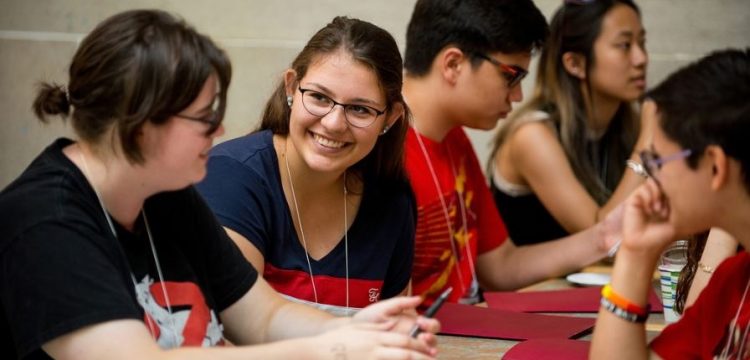Humanising higher education via inclusive leadership
Patrick Blessinger, Enakshi Sengupta, and Shai Reshef
St John’s University, New York City, USA, The HETL Association, USA and The University of the People, USA
The demand for higher education of all types is at an all-time high. As the world becomes more integrated and interdependent through the processes of globalisation and internationalisation and more driven by and dependent on advanced knowledge, skills and competencies, lifelong learning has not only become a necessity for economic development and social progress, but it is now recognised as a human right.
Over the past several decades the development and reform of higher education systems around the world has progressed at an unprecedented rate.
A result of this shifting paradigm of higher education is a huge proliferation of new colleges and universities of all types as well as new research, publications and conferences focused on higher education.
In addition, there has been a huge increase in open educational resources and other types of formal and non-formal higher learning in support of the United Nations Sustainable Development Goal Four.
Every aspect of higher education continues to be re-examined in order to find more effective ways to provide quality higher education to the world’s population. As higher education becomes increasingly global, diverse and interconnected, new challenges arise that educators must address in constructive ways. Higher education should be a place of caring, support and the meaningful pursuit of academic and professional goals.
Improving academic environments
Given the importance of lifelong learning in the lives of people, one set of issues that has received increased attention is the physical, psychological and social well-being and safety of students and professors.
A growing body of academic literature, as well as daily headlines in higher education news media, now exists on topics such as academic bullying, racial or ethnic prejudice, sexual harassment, religious intolerance, suppression of academic freedom and other forms of oppression, maltreatment and exploitation that may occur in some academic environments around the world.
Because individuals may fear reprisals if they report these types of experiences or if they go public about their experiences, they may decide to quit, drop out, remain silent or write about their experiences anonymously.
Working and learning in such academic environments could lead to high levels of stress, depression, and even suicide in some people.
The human rights and democratic approach to higher education, together with the development of ubiquitous social media and public news outlets devoted to higher education issues, has provided a new forum to discuss these issues.
To address these important issues in a positive manner, many higher education institutions and associations now have policy statements and declarations that describe their stance on such critical issues as free speech, institutional code of ethics and student well-being.
Creating a culture of well-being
The increasing focus on social justice, professional standards of conduct and adherence to ethical principles of behaviour in the educational space means that educational leaders must be more proactive in ensuring that all people in higher education are treated humanely and fairly while, at the same time, maintaining high standards of academic quality and intellectual rigour.
In addition to policies, all higher education institutions should adopt a written code of ethics that affirms that all people, regardless of position or status or any other factor, have a right to be treated with dignity and respect.
Even in countries that have comprehensive laws against racial discrimination, sexual harassment, workplace bullying and the like, dysfunctional work environments can still develop slowly like a cancer if these issues are not addressed proactively. Laws and institutional policies are only as good as one’s willingness to abide by them with due process procedures. Thus, developing a positive culture of care is vitally important.
Educational leaders at all levels set the tone for the institutional culture. As such, they must not only model the behaviour they seek in others, but they should also put in place policies and procedures for creating a positive work environment centred on care and well-being.
It is therefore vital for leaders to create a culture of inclusion and a collaborative learning community based on democratic principles and human rights. Those who are in positions of power and authority have a moral responsibility to use their power and authority judiciously and ethically.
The need for humane leadership
There are several ways that institutions can foster a culture of care and well-being.
One way is by implementing a code of professional ethics that outlines what is considered appropriate behaviour.
Another way is to enact due process policies and procedures for dealing with these issues when they occur.
Another way is to redesign learning spaces across delivery methods (physical, blended and online) based on student-centred learning principles and to put in place initiatives that encourage positive mental health, psychological well-being and physical safety throughout the institution.
In addition, professional development should be provided to all those who work in higher education on issues that will foster an environment of dignity and respect. For instance, a growing number of institutions have enacted policies and statements on student rights and faculty rights as well as programmes that encourage physical, psychological and social well-being and safety for all.
For faculty, staff and administrators, developing inclusive leadership skills as well as an ethical and humane mindset is just as important as developing teaching, research and managerial skills because, ultimately, education is about developing the human potential of students regardless of what discipline they study or what profession they enter.
Within this context, the central aim of humanistic education is the development of the whole person through the acquisition of knowledge, skills, competencies, ethics and habits of mind. Ultimately, the result of a humanistic-oriented educational process is that it fosters personal agency so that students can apply their knowledge and skills creatively in any situation.
Humanistic education is focused on the total needs of the individual and society where all those who work in education have a sense of responsibility to self, to others and to the larger world we inhabit.
Patrick Blessinger is an adjunct associate professor of education at St John’s University, New York City, USA, and chief research scientist for the International Higher Education Teaching and Learning Association (HETL). Enakshi Sengupta is associate director for the International Higher Education Teaching and Learning Association. Shai Reshef is president of University of the People. The International HETL Association will explore some of the issues raised in this article in its forthcoming multi-volume series titled Humanizing Higher Education.
Suggested Citation:
Blessinger, P., Sengupta, E., and Reshef, S. (2019). Humanising higher education via inclusive leadership, University World News,
https://www.universityworldnews.com/post.php?story=20190218081816874
Or
Blessinger, P., Sengupta, E., and Reshef, S. (2019). Humanising higher education via inclusive leadership, Higher Education Tomorrow, Volume 6, Article 1, https://www.universityworldnews.com/post.php?story=20190218081816874
Copyright © [2019] Patrick Blessinger, Enakshi Sengupta, and Shai Reshef
Disclaimer
Opinions expressed in this article are those of the author, and as such do not necessarily represent the position(s) of other professionals or any institution.




